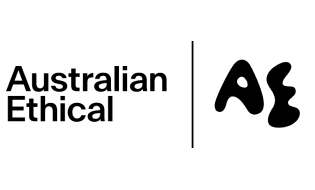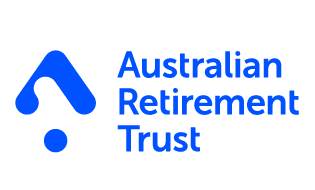





Unless indicated otherwise, the information in the table is based on data provided by SuperRatings Pty Limited ABN 95 100 192 283, a Corporate Authorised Representative (CAR No.1309956) of Lonsec Research Pty Ltd ABN 11 151 658 561, Australian Financial Services Licence No. 421445.
*Past performance data and fee data is for the period ending May 2024
Figuring out the best super fund performance for 2024
It's impossible to measure future performance of any super fund. That's why we look at past performance. Which can only be an indication rather than a prediction of future returns.
Using data from the 2023 Finder Awards, we have the following winners based on different super fund categories:
- Best Balanced Super Fund: Aware Super - Balanced Socially Conscious has an annual return of 8.4% over the past 10 years and 7.06% over the past 5 years.
- Best Conservative Super Fund: HESTA Conservative offered a steady annual average return of 5.45% over the past 10 years and 4.28% over the past 5 years.
- Best Conservative Balanced Super Fund: AustralianSuper Conservative Balanced had a return of 6.74% over the past 10 years and 5.04% over the past 5 years.
- Best High Growth Super Fund: UniSuper Sustainable High Growth delivered an annual average of 10.35% over the past 10 years and 8.48% over the past 5 years.
- Best Low Fee Super Fund: Hostplus Indexed Balanced had fees of $136 p.a on a $50,000 balance. The fund delivered 7.93% p.a over the past 10 years and 6.49% over the past 5 years.
- Single Asset Classes Super Fund: Australian Retirement Trust - International Shares Index (unhedged) had an annual return of 12.26% over the past 10 years and 10.13% over the past 5 years.
For more detailed insights into these categories and winners, take a look at our Finder Superannuation Awards 2023 page.
We put every effort into ensuring information on Finder is accurate. This article was reviewed by Karen Eley from our Editorial Review Board as part of our fact checking process.
How do we pick the best super funds?
At Finder, we understand that there is no one-size-fits-all "best" super fund. The ideal fund for you depends on your life stage, risk tolerance and growth objectives. To guide you effectively, we've selected super funds catering to different life stages and financial goals.
Our methodology involves a comprehensive analysis of various factors including performance, fees and investment options. We scrutinise funds to ensure they meet diverse investor needs, from those just starting their careers to those nearing retirement.
What's the highest-performing Australian super fund in 2024?
In the current year we can look at 2023 returns to find the highest-performing funds. And the super funds with the highest returns last year are all single sector investment options that invest entirely in shares.
These investment options have returned over 20% for members over the 12 months to June 2023.
Mine Super's International Shares option was the top performer over the financial year with a return of 22.77%. Some other high-performing funds include Virgin Money Super Indexed Overseas Shares with a return of 21.49%, Aware Super International Shares with 20.72% and Australian Retirement Trust International Shares Index (unhedged) with 20.37%.
Although these funds have achieved outstanding high returns over the past year, they're all very high-risk investment options as they invest exclusively in international shares. The recent financial year was a good one for the share market, but it's important to remember that when there's a market fall, these options would be likely to instead make a negative return.
Kirby Rappell, executive director of SuperRatings, highlights this aspect in a July 2023 press release.
"Super funds have delivered competitive outcomes amid economic uncertainties, but high-return options are notably riskier, especially in volatile markets"
He also notes the importance of a long-term perspective, stating that "despite market fluctuations, superannuation's long-term performance remains strong, which is crucial for members not nearing retirement."
Over the long term (10 years), these funds have all achieved annual average returns of between 10% and 12% p.a.
Why it's important to make sure you're with a great super fund
Each year the regulator APRA analyses the market and identifies the worst super funds that are underperforming for members. APRA tested 58 MySuper products in 2023 which held $907 billion in assets, and the test showed an average performance of 0.41% above the benchmark.
APRA found that 80% of members' MySuper accounts perform above the benchmark, which is great if you are in that cohort. But for the remaining 20% the products underperformed by >0.50%. While only a small amount, you don't want your super to underperform.
You can use Finder's superannuation calculator to see an estimate of your retirement balance based on your current fund, versus if you switched to a different fund with better returns or lower fees.
How to pick the best super fund
Choosing the right super fund is crucial for your financial future. While the top-performing funds are a great start, they may not always align with your specific needs. If you're looking elsewhere, consider these key factors from our comparison table below:
High long-term returns. Look for funds with a consistent track record of strong returns over the long term (funds with 10-year returns above 7% p.a. are among the top performers).
Low fees. Higher fees can significantly eat into your retirement savings. Opt for funds with lower fees without compromising on performance (aim for annual fees less than 1.5% of your super balance).
Investment strategy aligns with your age. Your age and retirement goals should dictate your investment strategy. Younger investors might prefer high-growth options, whereas those nearing retirement may prioritise stability and have a shorter investing time horizon for a portion of their balance. If needing access to funds in the next 3-5 years, it's important to be invested in a lower risk option.
Access to insurance cover. Does the fund offers members cost-effective life, TPD and salary continuance policies?
Use these criteria as a guide to navigate through the comparison table and find the fund that best suits your financial situation and goals.

I only moved to Australia 6 years ago so I'm playing catch up with my super. For me, low fees are important and to know my money isn't being invested in something that's destroying the planet. I also cancelled the life insurance inside my super because the premiums increase every year.— Gary Ross Hunter, insurance and innovations editor
Methodology: How we choose our best super fund picks
We regularly look at the super funds in our database to determine which are the best offers for a range of different purposes. Specifically, here's how we determine each of our top pick recommendations:
FAQs about picking the best super funds in Australia
Why you can trust Finder's super fund experts
 You pay nothing. Finder is free to use. And you pay the same as going direct. No markups, no hidden fees. Guaranteed.
You pay nothing. Finder is free to use. And you pay the same as going direct. No markups, no hidden fees. Guaranteed.
 You save time. We spend 100s of hours researching super funds so you can sort the gold from the junk faster.
You save time. We spend 100s of hours researching super funds so you can sort the gold from the junk faster. You compare more. Our comparison tools bring you more super funds from across the market.
You compare more. Our comparison tools bring you more super funds from across the market.
More guides on Finder
-
Finder Verified: Australia’s most rewarding credit card for eats and drinks
SPONSORED: American Express launches Essential Rewards Credit Card for a new generation of Aussies.
-
Can’t afford to split: Almost 1 in 5 Aussies have remained living with an ex to save money on housing costs
Soaring living costs are forcing a growing number of people to stay shacked up with an ex, according to new research by Finder.
-
Save $624 by switching to a better home loan | Dollar Saver tip #93
Save $624 a month by switching home loans
-
Dollar Saver tips index
Find all the weekly tips from our Dollar Saver newsletter and see how you could save.
-
Finder’s RBA Survey: Experts predict a surge in arrears, unemployment as cash rate holds
Mortgage holders are bearing too much of the brunt of the RBA’s effort to bring down inflation, according to the majority of panellists in Finder’s latest poll.
-
Homeowners survive RBA cash rate decision, but is it enough?
With 41% of mortgage-holders struggling to pay their mortgages, is this month's cash rate hold enough to help?
-
see-u health insurance review
see-u is part of popular non profit insurer HBF - but if you’re interested in a policy, you’ll have to call. You can’t join online.
-
Revolut Business Transfers review
Check out Finder's review of Revolut Business Transfers and see if it's the right international business money transfer solution for you.
-
Basket bandits: 3.3 million Aussies have stolen a basket or trolley from the supermarket
A surprising number of Aussie shoppers have gone rogue with supermarket baskets or trolleys in the past year, according to new research by Finder.
-
Switch Week: 6 ripper ways to save cash with Kogan Essentials
SPONSORED: One week only! Score a range of great deals on financial products and services with Kogan.
Ask a question



As a self employed, am I by law required to have a super fund? At 50, contemplating on starting a superannuation fund, plus paying for a 30 year mortgage, is there a table showing approximately returns on what amount is put in… Are there previous charts on what is put in and what is the outcome after 10/ 20 years?
Hi there,
When you are self-employed there is no legal requirement to pay yourself superannuation. However, there may be some tax advantages of doing so, not to mention the benefit of investment returns.
We’re not licenced to offer personal advice, but this calculator can help you understand how much you might be able to generate through super (in the employer contributions section, enter the percentage that you are considering paying):
https://www.finder.com.au/super-funds/superannuation-calculator
Also, here is some more information about superannuation for self-employed Australians:
https://www.finder.com.au/super-funds/superannuation-for-sole-traders
Hope this helps!
i have a 15 year old who is working. what is the best super fund for teenagers?
Hi Rachel,
We won’t be able to recommend any specific super fund products for your son. However we have written what to look for when selecting a suitable fund here
Thanks
Raj
Hi, I am looking for the best returning super fund taking into account as is stated on your website the fees, how the fund invests your money and if it aligns with your risk appetite which is high growth. The difficulty I am having is comparing high growth as the definition/asset class and the weightings between different super funds can vary so we are not comparing apples to apples. Currently I am with an industry fund and find since they run a lot of ads, fund profits/fees are eaten by the ads so I am looking for other type of funds that are also transparent. Thank you
Hi Navid, Finder is a comparison site and we aren’t licensed to give you any personal advice or product recommendations. You can use our comparison table to compare high growth options, by using the filters on the side: https://www.finder.com.au/super-funds
Hope this helps. Thanks,
Alison
Hi, I’m an international student (my plan is to get a PR eventually), and I am about to start 2 casual jobs; I do not know how to choose which is better for my situation. Could you please assist me with that?
Thank you.
Hi Maria, we aren’t licensed to offer you any personal financial advice or product recommendations. In general when choosing a super fund it’s best to look for a fund that has a combination of low annual fees and a history of high long-term returns. If you’d like some personal recommendations it’d be best to speak to a financial adviser who can give you recommendations for your situation. Thanks, Alison.
If the fees charged by on a Pension account are a percentage of your balance, how do you lose money by having more than one account?
Hi Barb, usually super funds charge a dollar based fee as well as a percentage based fee.